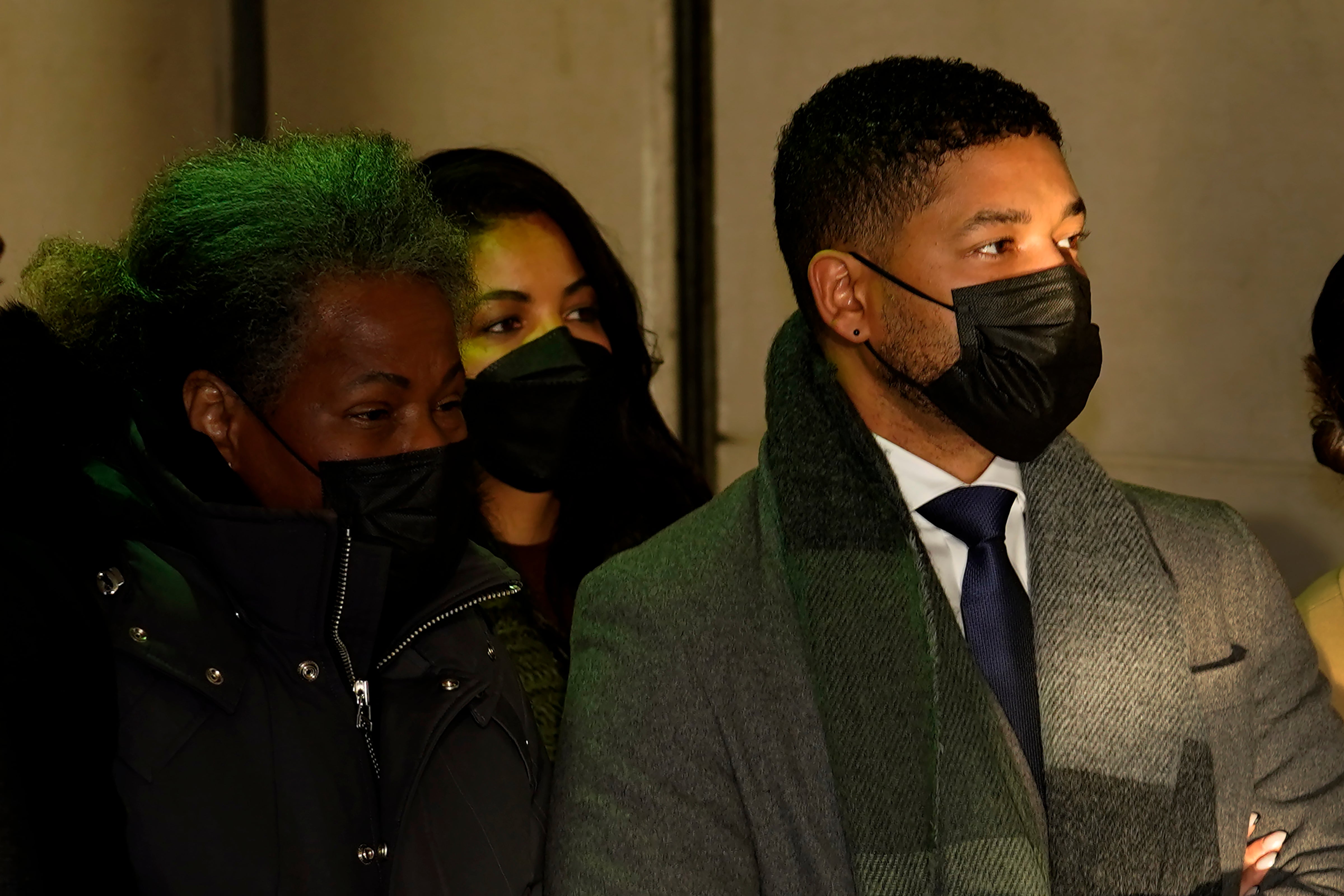Jussie Smollett awaits verdict as jurors consider case
Jurors are expected to resume deliberations in the trial of Jussie Smollett

Your support helps us to tell the story
From reproductive rights to climate change to Big Tech, The Independent is on the ground when the story is developing. Whether it's investigating the financials of Elon Musk's pro-Trump PAC or producing our latest documentary, 'The A Word', which shines a light on the American women fighting for reproductive rights, we know how important it is to parse out the facts from the messaging.
At such a critical moment in US history, we need reporters on the ground. Your donation allows us to keep sending journalists to speak to both sides of the story.
The Independent is trusted by Americans across the entire political spectrum. And unlike many other quality news outlets, we choose not to lock Americans out of our reporting and analysis with paywalls. We believe quality journalism should be available to everyone, paid for by those who can afford it.
Your support makes all the difference.Jurors in Jussie Smollett’s trial are expected to resume deliberations Thursday on charges the former “Empire” actor orchestrated a fake attack on himself, then lied to Chicago police about being the victim of an anti-gay, racist hate crime.
The jury deliberated for about two hours on Wednesday following a roughly one-week trial. They asked Judge James Linn for a copy of a calendar prosecutors displayed at trial that indicated relevant dates, including that of the alleged attack and of what two brothers testified was a “dry run” for the Jan. 29, 2019, assault.
In closing arguments earlier Wednesday, a prosecutor told jurors there is “overwhelming evidence” that Smollett staged the attack, then lied to police about it for publicity. His defense attorney said prosecutors' case was based on lies.
Two brothers testified last week that Smollett recruited them to fake the attack near his home in downtown Chicago. They said Smollett, who is Black and gay, told them to put a noose around his neck, yell racist and homophobic slurs, and rough him up in view of a surveillance camera.
Smollett testified that he was the victim of a real hate crime, telling jurors “there was no hoax. ” He called the brothers “liars” and said the $3,500 check he wrote them was for meal and workout plans. His attorneys argued that the brothers attacked the actor because they are homophobic and that they made up the story about the attack being staged but said they wouldn’t testify against Smollett if he paid them each $1 million.
In his closing argument Wednesday, special prosecutor Dan Webb told the jury that Smollett caused Chicago police to spend enormous resources investigating what they believe was a fake crime.
“Besides being against the law, it is just plain wrong to outright denigrate something as serious as a real hate crime and then make sure it involved words and symbols that have such historical significance in our country,” Webb said.
He also accused Smollett of lying to jurors, saying surveillance video from before the alleged attack and that night contradicts key moments of Smollett’s testimony.
Defense attorney Nenye Uche called the brothers “sophisticated liars" who may have been motivated to attack Smollett because of homophobia or because they wanted to be hired to work as his security.
“These guys want to make money,” he said.
Webb questioned why Smollett didn’t turn over his cellphone to police or give them a DNA sample or access to his medical records to help with the investigation. Smollett testified he doesn’t trust Chicago police, and that he was concerned about his privacy.
“If he was a true victim of a crime he would not be withholding evidence,” Webb said.
Uche called it “nonsense” for Chicago police to ask Smollett for his DNA when he was still considered the victim of a crime. He noted Smollett later provided DNA to the FBI for a separate investigation into hate mail he had received at the “Empire” studio shortly before the alleged attack.
“He wasn’t hiding anything,” Uche said.
The disorderly conduct charge is a class 4 felony that carries a prison sentence of up to three years, but experts have said if Smollett is convicted, he would likely be placed on probation and ordered to perform community service.
___
Check out the AP’s complete coverage of the Jussie Smollett case.